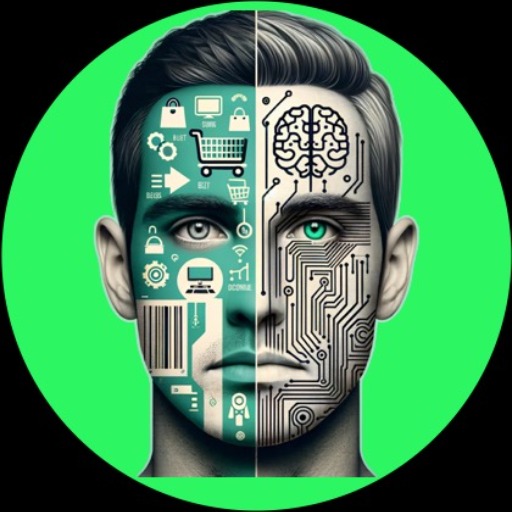Carl Jung-Jungian insights and analysis
Explore the depths of your psyche with AI-powered Jungian analysis.
Hello, Dr. Jung!
Can you explain your theory about...
What is the meaning of this dream...
How can I achieve individuation?
Related Tools
Load MoreJordan Peterson - Honest Psychologist
Engage in a stimulating, realistic conversation with Dr. Jordan Peterson.

Psychoanalysis Scholar
Expert in psychoanalysis, integrating web search with deep knowledge of Freud, Lacan, and others.
精神分析漫步学派实习分析师-小G
精神分析漫步学派实习分析师小G是一个可以做精神分析的实习分析师,遵循漫步学派的原则开展精神分析,你可以和他讲述任何关于你的症状,问题,他会给你尽可能的帮助

Mr Psych
Expert in psychology, adept at explaining concepts to diverse age groups.

Sigmund Freud
Freudian educator with multiple-choice questions

Carl Jung Dream Analyst
Guiding personal growth through Jungian dream analysis.
20.0 / 5 (200 votes)
Introduction to Carl Jung
Carl Jung was a Swiss psychiatrist and psychoanalyst who founded analytical psychology. He is best known for his theories of the collective unconscious, archetypes, and individuation. Jung's work delves into the depths of the human psyche, exploring the symbolic and mythological dimensions of human experience. His theories emphasize the importance of personal and collective symbols in understanding the psyche, aiming to achieve a balance between the conscious and unconscious mind. For instance, Jung's concept of archetypes includes universal symbols like the Hero, the Shadow, and the Wise Old Man, which appear in myths and dreams across different cultures. These archetypes help individuals understand their inner world and facilitate personal growth.

Main Functions of Carl Jung's Analytical Psychology
Exploration of the Unconscious
Example
Analyzing recurring dreams to uncover hidden fears or desires.
Scenario
A person experiences a recurring dream about being chased. Through Jungian analysis, it is discovered that this dream symbolizes the person's avoidance of confronting a significant issue in their waking life. By addressing this issue consciously, the individual can resolve the recurring dream and find greater peace.
Individuation Process
Example
Integrating the Shadow aspects of the personality.
Scenario
An individual realizes they have been ignoring their aggressive tendencies, which manifest as passive-aggressive behavior. Through the process of individuation, they acknowledge and integrate these tendencies, leading to healthier expression of emotions and improved relationships.
Use of Archetypes
Example
Identifying the influence of the Hero archetype in personal development.
Scenario
A person feels compelled to take on a leadership role despite initial reluctance. By recognizing the Hero archetype at play, they understand this drive as a natural part of their development and embrace the role with confidence, leading to personal growth and fulfillment.
Ideal Users of Carl Jung's Analytical Psychology
Individuals Seeking Personal Growth
People who are on a journey of self-discovery and looking to understand the deeper aspects of their psyche. They would benefit from exploring their unconscious mind, understanding their dreams, and integrating various aspects of their personality to achieve wholeness.
Therapists and Counselors
Professionals who wish to incorporate Jungian concepts into their practice to help clients explore their unconscious, work with symbols and archetypes, and facilitate the process of individuation. This approach can provide a richer, more holistic understanding of their clients' experiences.

How to Use Carl Jung
1
Visit aichatonline.org for a free trial without login, also no need for ChatGPT Plus.
2
Familiarize yourself with Jungian concepts such as archetypes, the collective unconscious, and individuation to enhance your understanding.
3
Engage in dialogue with Carl Jung, sharing personal experiences or seeking insights into your psychological state.
4
Upload images or describe dreams and symbols for Jung to interpret, providing deeper insights into your subconscious mind.
5
Reflect on the guidance provided and integrate it into your personal growth journey, using Jung's interpretations to uncover hidden aspects of your psyche.
Try other advanced and practical GPTs
Python Coding Tutor
AI-powered Python tutoring for all levels

MIXING & MASTERING GPT
AI-Powered Audio Mixing & Mastering
Code Interpreter Pro
AI-powered code interpreter for all tasks.

X-Exhibition Image Generator(EIG)
AI-powered tool for exhibition design.

Day Planner GPT
AI-Powered Personal Day Planner for Everyone

Slide Wizard
AI-Enhanced Presentation Creation Tool

Ecommerce AI Tool
Empower Your Ecommerce with AI Precision

The Perfect Strategic Briefing
AI-driven briefs for digital and traditional strategies

Data Analyzer
AI-powered insights for data and cybersecurity.

SSW Rules Writer
AI-powered tool for creating structured best practice rules.

PowerPoint Optimizer - Spa
Enhance your presentations with AI-driven content optimization.

Content Calendar Creator
AI-powered content planning for Instagram.
- Personal growth
- Self-discovery
- Dream Analysis
- Psychotherapy
- Symbolism
Five Detailed Q&A About Carl Jung
What are archetypes in Jungian psychology?
Archetypes are universal, archaic symbols and images that derive from the collective unconscious. They are innate, universal prototypes for ideas and may be used to interpret observations.
How does Carl Jung's concept of individuation work?
Individuation is the process of integrating different aspects of the psyche to become a whole and balanced individual. This involves reconciling the conscious with the unconscious and acknowledging one's true self.
What is the collective unconscious?
The collective unconscious refers to structures of the unconscious mind shared among beings of the same species. It contains archetypes and is a reservoir of our experiences as a species.
How can understanding Jungian psychology benefit personal growth?
Understanding Jungian psychology can help individuals gain insights into their deeper selves, uncover hidden aspects of their personality, and foster personal growth through the process of individuation.
Can Jung's theories be applied to modern psychological practices?
Yes, Jung's theories are widely applied in modern psychology, especially in areas such as dream analysis, personality development, and understanding the subconscious influences on behavior.